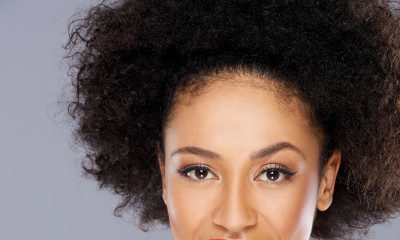Features
Uche Anichebe: Woman of the 21st Century
 Once upon a time, humanity was divided along two extreme poles; there was man on one end, and woman on the other. The concept of womanhood and the rights of women were relegated to the background, as secondary. However great their contribution to humanity, and their society, the woman and girl -child were regarded as unimportant, except as it related to child bearing, home caring and other sundry matters. There was, as it seemed, a conspiracy among the patriarchal societies to keep the females in perpetual subjugation. It was agreed among them and concretized by their myths cultural and religious beliefs, that since the woman was second to man in creation, she was evermore to remain second, or worse still, second class! Consequently, her visions, dreams and aspirations were only to be fashioned as her society permitted.
Once upon a time, humanity was divided along two extreme poles; there was man on one end, and woman on the other. The concept of womanhood and the rights of women were relegated to the background, as secondary. However great their contribution to humanity, and their society, the woman and girl -child were regarded as unimportant, except as it related to child bearing, home caring and other sundry matters. There was, as it seemed, a conspiracy among the patriarchal societies to keep the females in perpetual subjugation. It was agreed among them and concretized by their myths cultural and religious beliefs, that since the woman was second to man in creation, she was evermore to remain second, or worse still, second class! Consequently, her visions, dreams and aspirations were only to be fashioned as her society permitted.
The woman was made from man, their religious doctrines preached, and conclusively, for man, – that was all that mattered. From birth, she was subject to ownership, her identity stemmed from being the daughter of her father, without more. Little wonder the proliferation of traditional names like Adanna, Adaeze,Adaigwe,Adaobi. etc, and from tender age she was groomed and prepared for nothing else than for her husband(who must have betrothed her right from birth!). Her life was designed as it were, in a circle, with the recurring domination of the male counterpart. She could never desire more. Her dreams and aspirations were written off as far-fetched unless they were related to how she would be a good daughter who would bring joy to her father by getting married to a good man and of course; how she would bring joy to her husband; have a good home, be a good wife, have good children( who customarily belonged to her husband).
The woman was considered a chattel, to be subject at all times, to ownership (by a man). This general belief pervaded in all societies, howbeit large or small. Little wonder the Eskimo men thought it fit to offer their wives as gifts to their male visitors. Again, in the Igbo society, most girls are christened Ego, Obiageli, Nnu ego, et al, all of which are indicators of her mercantile value. Not only did the macho society stop at considering her a chattel, no. she was a chattel bereft of any iota of magnificence. This contemptuous view is well encapsulated in the daily morning prayer of the Jewish men, which goes thus, ‘blessed be thee o God, who has not made me a Gentile, a slave or a woman!’ The question to be asked therefore, is whether the paradigm has shifted. Put differently, is the position of the pre-twenty first century woman, any different from the woman in contemporary times.
WORLDWIDE ANALYSIS
Women were first recognized as humans in 856 AD, at the French Conference, however, it was also resolved at that conference that despite being humans, they were primarily created to worship men. Up till now, it has remained a bone of contention whether women’s rights qualify as human rights. It cannot be gainsaid that just as in the days of antiquity, the 21st century woman is also bound by an invisible manacle. Truth be told, she is being discriminated and treated as the second fiddle in all area of her life’s endeavor, be it domestic, social, cultural, religious, political and economic. Most surprising is the fact that whereas in the affairs and conduct of her life, she is considered and treated as less human, she immediately becomes super human when confronted with the penal systems of the societies where she resides. This will be explained shortly.
In the primordial days, several barbaric acts were perpetrated against women, acts which were aimed to prove their innocence or guilt in the face of accusations. After being accused of adultery, Cunigunde of Luxemburg was forced to prove her innocence by walking over red hot ploughshares. Again, in Athens a woman who was accused of adultery was tied in a sack and thrown into a river. Her humanly impossible escape and survival was proof of divine intervention, and ultimately, her innocence. If she drowned, she was presumed guilty and left to die. In Madagascar, women who were accused of witchcraft were made to undergo the ordeal of Tagena. Here, the woman is made to eat the nut of the Tagena Tree, which contains toxins that cause the heart to fibrillate, and in many cases, completely stop beating. Coming nearer home, among the Igbo people, it is common practice for a woman accused of killing her husband to be forced to drink the germ infested bath water of the deceased to prove her innocence. All these were forms of trials by ordeal, in which it was expected that the gods would rescue the innocent women in question.
Seasons have come and seasons have gone, yet, the hands of patriarchy have remained present in the society. The idea that the woman is only to be seen, and not heard has not altogether been diminished in the present African societies. Therefore, it is not uncommon to here statements such as, ‘sit down, don’t you know that you are a woman’, ‘you are woman, and you should behave as such’, ‘shut up! a woman must never speak up so loud’ etc. these and more are relics of the patriarchal elements in our present African society.
Despite the advancement in education, technology and learning, barbarous acts aimed at dehumanizing the woman are still meted out against the African woman. Disinheritance of the woman and girl child are still very much rampant. Girl-child marriage is still prevalent and acceded to, especially in the hinter lands. Under-education or lack of education of the girl child is not uncommon. A research by UNICEF in 2006 revealed that one out of five African girl-child does not complete primary education, and only 43% of them attend and complete secondary education.
Practices that pose hazards to women are still widely practiced and sanctioned, either tacitly or otherwise. Such practices include Female Genital Mutilation(despite its hazardous consequences like VVF and RVF), child betrothal and marriage, widowhood rites, unemployment of women, female stereotyping, male- child preference, inequality in opportunity, inter alia.
THE NIGERIAN SITUATION
A good majority of the above discriminatory practices are also prevalent in Nigeria. However, I shall now proceed to consider specific gender discriminatory practices in Nigeria.
It is no new tale that the inheritance right of women and girl child has over the years, been opposed to, especially in the eastern part of Nigeria, where women can in fact, be inherited upon the demise of their husbands. The disinheritance of wives and the girl- child was clearly condemned in the celebrated case of Mojekwu v Mojekwu[1997]5 NWLR (Pt 512), Nzekwu v Nzekwu[1989]2 NWLR(pt 104)317, Uke v Iro[2002]1 AHRLR 1555. However, whether the magisterial decision of the courts are heeded is another question all together. Annexed to this is the fact that in some Igbo communities (eg, Nneato community in Imo state), women, are denied the right to give evidence in land matters in court.
Furthermore, in Islamic religion, a man required four unimpeachable witnesses to testify against him on a charge for adultery. This greatly contradicted the case of the woman, where the fact of pregnancy was sufficient prove of adultery, on which she was stoned to death. Worthy of note is the fact that under Sharia Law, the evidence of a woman does not have equal weight with that of the man. As such, the testimony of two women is equal to the testimony of one man! Again, under Sharia Law, the Quran expressly sanctions the chastisement of wives by their husbands.
In addition, discriminatory administrative practices are rife in Nigeria. it is common in the police force for women to be denied or excluded from acting as sureties. Again, married women are denied enlistment into the police force. By Regulation 127 of the Police Act, a female police officer desirous of getting married must first apply to the Commissioner of police, with the particulars of her would be husband. it is also not unknown that women in Nigeria are generally not allowed to bail accused persons. Again, the immigration requirement that married women seeking for passport should submit along with her application, a letter of consent by her husband, is very much discriminatory.
We must continue to remember, that the above discriminatory practices meted out on women, do not apply to the male counterparts. The above mentioned practices are against the letters and spirit of s.42 of the 1999 Constitution (as amended, 2011), which enunciates the freedom of every Nigerian from all forms of discrimination on the basis of sex (ie gender), inter alia.
THE WAY FORWARD
There is no malaise without solution; no malady, without remedy. It has been said many times that the task of eradicating the discrimination of women rests with the legislative arm of government, the judiciary, Non Governmental Organizations, Human rights activist, inter alia. I do concede to this widespread opinion, however, it is my considered view that in our quest to eradicate discrimination of women in Nigeria, Africa and the world at large, the first port of call should be the re-orientation of the minds and beliefs of men and women alike. They should be schooled and re-schooled on the equity and the justice in upholding the dignity of women.
Conclusively, if ever, we are tempted or pushed to treat any woman as secondary or worthless, or ordinary, we must immediately remember the likes of Chimamanda Adichie, Onyeka Onwenu, Ngozi Okonjo- Iweala, Asa, Stella Okunna, Tara Durotoye, Dora Akunyili, inter alia. They are phenomenal world figures with acclaimed measures of excellence, yet, they are women! Every woman is by virtue of her ‘womanhood’, a mother, a companion, a sister, a friend, a wife, a soul mate, a doctor, a counselor, a guardian, and an invaluable gift to humanity. Let us un-learn our old ways. Let us uphold the dignity of the woman. Let us re-brand our perspectives on the African woman.
Photo Credit: Dreamstime | Michael Zhang
























